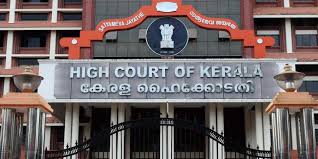Latest News
Kerala HC: The Court Can Declare A Property Free of Encumbrance Even Against The Will of Encumbrancer Under Section 57 of TPA.

The Kerala High Court by a single bench of Justice Devan Ramchandran in a significant judgment explained the procedural mechanism under section 57 of Transfer of Property Act, 1882, to lift encumbrance from immovable property.
Section 57 of TPA provides a mechanism to any party to sale an immovable property which is burdened by an encumbrance, to apply to Court for a declaration that the said property is freed from such encumbrance on deposit of sums to be adjudged by it, and for the issuance of an order of conveyance or vesting order, proper for giving effect to the sale.
The judgment puts light on the following aspects of the provision:
The Court states that Section 57 of TPA enables the sale of an immovable property which is subject to an encumbrance by assisting the party.
“The purpose of Section 57 of the TP Act is unmistakable from its tenor that it is intended to assist any party to the sale of an immovable property, which is subject to an encumbrance, to fructify the sale for its fair value after receiving in deposit - for payment to the incumbrancer - the capitalized value of the periodical charge, or the capital sum charged on the property, together with incidental charges. It thus enables the parties to a sale to invoke the jurisdiction of the court for the purpose of fulfilling their contracts, notwithstanding the encumbrances on the property.”
The High Court referred to the English case 'Wilberforce v. Wilberforce ((1915) 1 Ch 94), Sargant', where the Court stated that:
“Prima facie, the object of the whole of S.5 is not to disturb any vested or other rights more than is necessary, but to enable a sale to be effected and the property to be transferred to the purchaser notwithstanding there may be on the land a liability for payment of a future sum which would, but for the provisions of the section, clearly have prevented the sale of the land free from incumbrance. Of course, a purchaser might think fit to take the land subject to the incumbrance, but the purchase of land subject to an encumbrance is not usually a desirable investment, and the object of the section was to enable the land to be conveyed to the purchaser so that he might get a full and complete title to it.”
The Court made it clear that Section 57 of TPA allows for the sale of immovable property by both the way either 'by Court' or 'out of Court' as also in the execution of a decree.
The Court held that,
“Section 57 also provides that in the case of sale of immovable property subject to an encumbrance being sold by a court, or in the execution of a decree, or out of court, any party to it can apply for a declaration that the said property is free of such; in which event, the appropriate court may direct or allow payment, sufficient to meet the encumbrance on the property, into court. There is thus no doubt that this section is intended to facilitate sale out of court, as much as it is for sale by a court or in the execution of a decree.”
The consent of encumbrancers is not mandatory.
The High Court clarified that:
“Section 57 of the TP Act is wider in its amplitude than Section 83 or Order XXXIV Rule 12 of the CPC since it permits the court to declare a property free of encumbrance even against the will of the encumbrancer and even in the case of sales not directed by Order XXXIV of the CPC.”
It is held that Section 57 of TPA is wider in its amplitude and it is operative even in cases where the sale is not directed by order XXXIV of CPC.
While referring Mallikarjuna Sastri v. Narasimha Rao ((1901) ILR 24 Mad 412) the Court stated: “the section cannot be applied when it comes to a charge or encumbrance already adjudicated by a court and which has become part of a decree or even in a case of adjustment of a decree out of court.”
Case Details
Title: M P Varghese vs Annamma Yacob & others
Coram: Justice Devan Ramachandran.
Appearances : P Thomas Geevarghese, Tony Thomas & E S Firos, Advocates for the appellant; Shiju Varghese, Advocate, for respondent.
Document:



































































































